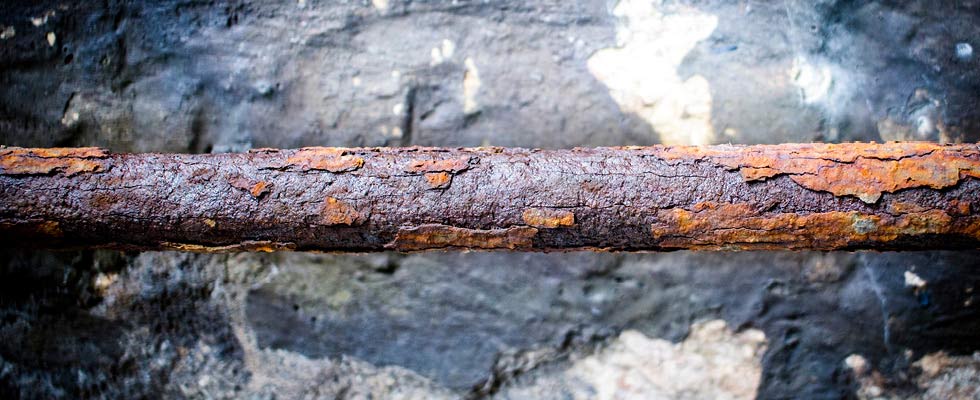
On March 22, the North Carolina Supreme Court dismissed a tenant’s personal injury lawsuit against a landlord based on a natural gas explosion. The court was divided, with five judges voting to dismiss the suit and two dissenting. It overruled a decision of the North Carolina Court of Appeals (also split — see the November 2023 issue of BPN), holding that the plaintiff had presented enough evidence against the landlord to warrant a jury trial. The case is identified as Terry v. Public Service of North Carolina.
‘Fine’
The events took place in Durham, North Carolina. In 2006, William Lucas leased a house to Stephanie and Anthony Terry. Gas appliances (a hot water heater and a furnace) were in a deep crawl space beneath the home’s bathroom. The natural gas utility was Public Service of North Carolina (PSNC).
These appliances were used uneventfully for more than 10 years. Anthony spoke with his landlord frequently over the years. Lucas regularly asked if there were any problems with the property. Anthony would always respond that everything was “fine.”
Smelling Gas
Then, in 2017, events took a tragic turn. In January of that year, the Terrys were away from home, taking their son to college. They got a call from Stephanie’s brother, who reported that he had seen a PSNC truck and a firetruck at the Terry home. He added that a neighbor had reported smelling natural gas near the home.
When the Terrys returned from their trip, there was no one at their home and they received no follow-up information from PSNC or the fire department. They did not report these events to their landlord, William Lucas.
That was not the extent of it. In March 2017, Anthony smelled natural gas while he was standing in the front yard of his residence. Also in March, a neighbor told Anthony that she smelled natural gas around his home. Anthony called PSNC and the fire department to report a gas odor outside his house, and they again responded to investigate.
They found no leaks in the exterior system but did not check inside. Again, the Terrys did not inform Lucas of these events, and no evidence was ever presented to show that he knew about them independently.
Corroded Gas Pipe
Weeks later, on April 13, Anthony walked into the bathroom. He turned on the light and an explosion immediately ensued. As a result of the explosion, the plaintiff suffered extremely serious burns all over his body, requiring extensive medical treatment. He remained in a coma for four months.
Examination of the property after the explosion revealed that the pipe supplying natural gas to the furnace was severely rusted and corroded. Over the years, a hole had developed in the bathroom flooring, above the furnace located in the crawl space. The hole measured approximately 10 to 12 inches long and an inch and a half wide. An expert witness hired by the Terrys opined that water had been leaking from the bathroom above onto the furnace pipe for approximately seven years, causing severe corrosion of the piping.
No Notice
The Terrys were aware of this hole and did not provide notice to Lucas regarding it (or regarding the water leak that caused the hole). They never expressed to Lucas any issues with the furnace, the flooring or unrepaired water leaks. On the other hand, Lucas had not inspected the furnace or any other part of the property since the Terrys occupied the property, nor did he inspect the furnace prior to commencement of the lease.
Lawsuit
Anthony filed suit against Lucas, claiming negligence in failing to inspect and find the corroded gas line, as well as violations of North Carolina’s Residential Rental Agreements Act (RRAA). He also sued PSNC but later filed a notice of voluntary dismissal of that claim. As pointed out in this column last November, this almost certainly signified that Anthony had reached a confidential out-of-court settlement with PSNC. So, the case continued against Lucas alone.
Dismissal & Reversal
Lucas filed a motion for summary judgment, and the trial court granted that motion. Anthony appealed. In a 2-1 decision, the Court of Appeals reversed the trial court decision, sending the case back for a jury trial on Anthony’s claims. But that was not the end of the process. Lucas appealed to the North Carolina Supreme Court, which then considered the matter.
The court first addressed the negligence claim against Lucas. The appeals court had ruled there was enough evidence to show he “should” have known about the corroded gas pipe, even though he had no actual knowledge of it.
The Supreme Court disagreed. It pointed to the fact that Anthony had known of the rather large hole in the bathroom floor for years and said nothing to Lucas about it. It also noted the events of January to March 2017, when gas was repeatedly smelled around the house, prompting PSNC and the fire department to make several trips.
Again, the court stated, Anthony said nothing to Lucas about these events. So, it concluded, “we hold that the Court of Appeals erred” in ruling against Lucas on the negligence claim.
‘Whatever Necessary’?
The court then turned its attention to Anthony’s claim under the North Carolina RRAA. The appellate court had ruled there was enough evidence for a jury to consider a claim that Lucas had violated the act by not doing “whatever necessary” to maintain the premises “in a fit and habitable condition.” Again, the Supreme Court disagreed:
“Plaintiff has presented no evidence that he notified defendant of any issues with the flooring, the heating system or the natural gas utilities, or that defendant had any actual knowledge of any such issues. … Plaintiff has [also] presented no evidence that defendant had the requisite knowledge or should have known that he was in violation of the … housing code. …
“Therefore, summary judgment in favor of defendant was not error. Accordingly, we reverse the decision of the Court of Appeals on this issue.”
Dissent
The dissenting judge, speaking for herself and one other judge, disagreed:
“Because the record demonstrates genuine issues about whether this landlord was negligent in the duty to maintain in “good and safe” working order the gas-fired furnace and associated gas piping, I would affirm the Court of Appeals’ holding as to a duty created by the RRAA.
I would entrust to a jury the questions of whether this landlord negligently breached the duty and whether that breach, if found, was the proximate cause of Mr. Terry’s life altering burns. For that reason, I respectfully dissent.”


